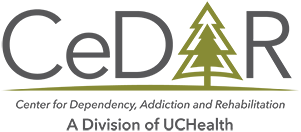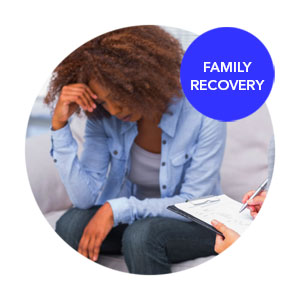For behavioral healthcare, and especially addiction treatment, many patients experience what we refer to as resistance. Resistance is a natural part of humanity, because most people cling to what is familiar, rather than openly dive into change.
If someone is receiving healthcare through CeDAR, we work to help them walk through resistance to addiction treatment and talk about it. This requires a reasonable level of engagement by the individual and requires the person to have a “curious mind” around the resistance.
When resistance to addiction treatment doesn’t get acknowledged or becomes acted out in strange ways, we would call it treatment interference. This basically means that the entire recovery process has the risk of breaking down. Before any sort of therapeutic work can continue, we must address the interference.
What are some of the most common areas for treatment interference we see at CeDAR? Here are three of the most common examples:
1. Not Showing Up
“90% of Life is Showing Up!” – Woody Allen
Addiction recovery is about relationships, and to have a relationship requires in-person contact. This includes going to a therapy appointment, making it to a meeting, or sitting down with a sponsor.
Having missed too many sessions is the most common reason someone will be discharged from the CeDAR Intensive Outpatient Program (IOP). Those misses might have reasonable excuses, but the program sets up an overall boundary around how many missed sessions are acceptable.
We also notice patients missing appointments while in the Intensive Residential Program. They sleep through sessions or often forget about the scheduling. It is our job as clinicians to appraise how appropriate we find the miss. We look at the difference between forgetting and avoiding something.
- What Can You Do?
- If you are involved in your family members care, especially if you are helping financially support the treatment, we recommend requiring a signed release of information (ROI) form allowing the therapist to contact you if there are no-show appointments. It is very reasonable for your family member to be held accountable for showing up. This does not require disclosure of what is being talked about during appointments.
Does your loved one need rehab?
2. Boredom
It’s very common for therapy sessions to involve needless details or friendly discussions lacking in substance. Why does this happen? It may represent avoidance or resistance to the needed discussion.
Another way of scanning for this is the presence (or absence) of emotional affect. A treatment process should be emotional and often difficult. If it isn’t difficult at all, what is there to be gained through the process? A good analogy for this is at the gym – no pain, no gain!
- What Can You Do?
- It is the clinician’s job to address these patterns. Connected to interference example number 1 above, someone needs to show up both physically and emotionally if they want to get better.
3. Drama
In recovery care, sometimes situations don’t feel right. They might feel overwhelming, confusing or erratic. An example might include a family system that pulls someone out of the treatment path immediately after a group therapy session that felt collaborative and positive. What is happening in these situations?
When something is difficult to explain, we can often attribute the problem to inherent drama within the family. Maybe people aren’t being honest? Maybe someone is unconsciously sabotaging the recovery process?
- What Can You Do?
- Drama tends to involve people reacting to things rather than acting. We emphasize this distinction in the CeDAR Family Program. Our goal is to help people slow down, reflect and rebuild. The presence of drama can be one of the most destructive forms of interference along the recovery path.
Final Thoughts
The process of recovering from addiction and mental illness is slow and can be treacherous and painful. Scanning for interference in this process can help an individual or family stay on track to reach their goals. The above examples are commonly seen in treatment at CeDAR, and we work collaboratively with families to address these issues head-on.




